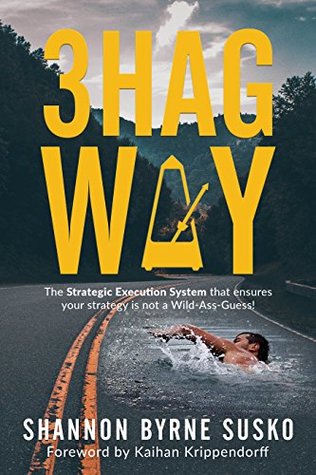More on this book
Kindle Notes & Highlights
Read between
November 23 - November 24, 2019
hard-to-copy factors like culture, uncommon hiring practices, and entrepreneurial processes that run counter to most retailers’ affinities for efficiency and simplicity.
After ten years of pushing for 10–15 percent growth each year, suddenly the company started growing at 40–50 percent annually.
Most companies endure long periods of tepid growth before they stumble upon a formula that works.
What happens during those long slogs in search of growth? A lot of wild-ass guesses, misses, and learning.
The slog toward growth can be demoralizing.
In 3HAG Way, Shannon Susko offers a step-by-step process to shorten the time it takes to reach your scaling point.
She reads more business books, attends more conferences, and draws knowledge from more business thinkers than anyone I
Operating a business without an evolving strategy is like driving a bus around the block. You drive up to a stop sign, you flip on your blinker, and you turn right. At the next stop sign, you flip on your blinker and turn right again. At the next stop sign, same thing. Nothing changes. If you don’t have an evolving growth strategy, then you and your team are just driving around the block. You may be doing very well, but you are not going anywhere.
unique, and not the best, the more likely it is to succeed.
Strategy is how you’re going to avoid competing on the same plane as everyone else;
we positioned ourselves to provide for the specific needs of the smaller broker-dealers first, and we did so with a long-term view in mind.
And because we focused on an underserved segment of the marketplace, after the market giants tried to compete with us and were not successful, they left us alone.
That initial 3HAG plan included a month-over-month, quarter-over-quarter, year-over-year plan to evolve our differentiating actions and maintain our unique and valuable position for a rolling three years. We
3HAG framework was born through curiosity; we were seeking clarity and wanted to be confident that we were driving the company in the right direction.
According to Michael Porter’s research, there are three generally accepted ways to create a differentiated strategic position: • Serve the broad needs of a few customers • Serve some needs of many customers • Serve many needs for many customers in a super-specific market
With our Paradata team, the Swimlanes were our Team Goal, and for each milestone in the Swimlane, someone volunteered to be accountable.
Annual Plan and then only have that visibility as you are getting closer to the end of the year and nothing beyond. The idea behind the Swimlanes was to get granular on how to move forward for the next four quarters and the eight quarters beyond that.
If you have a twelve-month budget, you can take it and extrapo-late it with some assumed percentage increases and see what this looks like in order to get to your draft 3HAG.
After you have your first draft, you’ll want to start refining your first twelve months; this should be the twelve months corresponding with the first year in your 3HAG.
Your twelve-month forecast gets created, approved, and locked in for the year. • Every month you review with the leadership team your approved forecast and discuss where you are and what you need to adjust. VERY IMPORTANT: You are adjusting your Rolling Forecast— not your approved forecast, but your Rolling Forecast.
It is a best practice to forecast the functional organizational chart for twelve quarters.
That’s why you will create a new 3HAG every year, so that you always have a 3HAG that’s three years away.
differentiated brand promise with a guarantee


